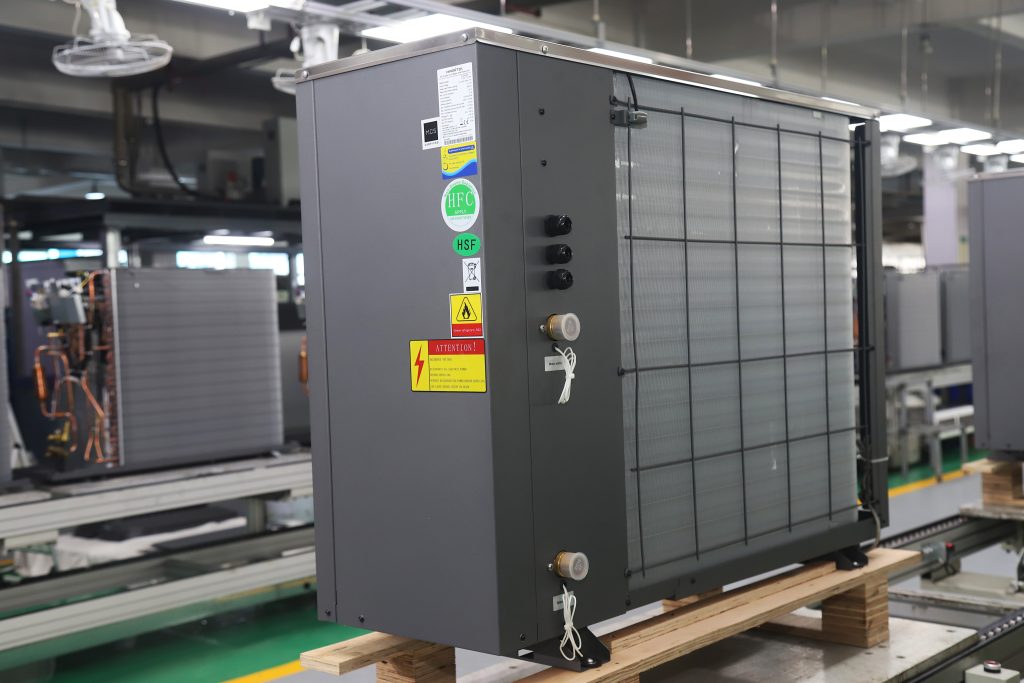31st October 2025
Opportunities and Challenges in the European Heat Pump Market: Strategies for Chinese Companies to Break Through
A silent revolution is occurring within European households’ heating systems, with heat pumps emerging as a pivotal technology to supplant natural gas boilers. Chinese companies are capitalizing on their strengths to secure a foothold in this transformation.
According to a model analysis conducted by the Cambridge Econometrics Institute, Europe must install 60 million heat pumps by 2030 to meet the objectives of the “Re-energizing the EU” initiative. The European heat pump market is undergoing explosive growth, propelled by both the energy crisis and climate objectives. In 2023, the European heat pump market attained $1.65 billion and is expected to sustain a compound annual growth rate (CAGR) of 19.2% up to 2032. This development presents Chinese heat pump companies with both unparalleled opportunities and formidable challenges.
I. Current Status of the European Market: Opportunities and Challenges Coexist
Driven by policy and against the backdrop of the energy crisis, the European heat pump market is experiencing rapid growth alongside complex challenges. According to a report by Global Market Insights, the European heat pump market is projected to continue expanding at a compound annual growth rate (CAGR) of 19.2% from 2024 to 2032. This growth trend is primarily driven by the EU’s carbon neutrality target and the specific policies of its member states.
Ireland has banned the installation of oil-fired boilers in new buildings since 2022 and plans to prohibit gas-fired boilers starting in 2025. The Netherlands aims to install 2 million heat pumps by 2030. Data indicates that in 2024, heat pump sales in 14 major European countries were approximately 2.2 million units, bringing the cumulative installed capacity to 26 million units by 2024. France, Italy, and Germany are the largest heat pump markets in Europe, accounting for half of the EU market. However, the European heat pump market also faces uncertainties. The European Commission has officially abandoned its heat pump action plan, a move that could impact market development. The European Heat Pump Association expressed disappointment and called for the inclusion of key elements of the cancelled plan in the upcoming EU strategy.
II. Market Drivers: Multiple Forces Promoting Development
The rapid development of the European heat pump market is attributed to a combination of factors: policy support, energy security considerations, and improved economics. At the policy level, the EU’s “Re-Empowering the EU” initiative and the REPowerEU strategy aim to reduce dependence on Russian fossil fuels.
An International Energy Agency report indicates that by 2030, the application of heat pumps will reduce EU natural gas demand by 21 billion cubic meters.
Regarding energy security, heat pumps, with their high energy conversion efficiency, have become a key technology for Europe’s energy transition. Heat pumps are three to five times more energy efficient than natural gas boilers.
In economic terms, the benefits of heat pumps are becoming increasingly evident as the prices of fossil fuels surge. Against the backdrop of current high energy costs, the use of heat pumps can save European households up to $900 annually on energy expenses.
Moreover, recent updates to building regulations are also fueling the demand for heat pumps. As part of its initiative to enforce zero-carbon building standards, the UK intends to phase out the sale of gas boilers. These policies and regulations foster a favorable environment for the heat pump market.
III. Barriers to the European Market: Compliance and Cost Challenges
The European market presents significant opportunities, yet Chinese heat pump companies encounter various challenges when entering it, such as regulatory barriers, financial pressures, and fierce market competition. The EU enforces rigorous regulations and directives on heat pump products, mandating compliance with safety, performance, and noise standards, as well as energy efficiency labeling and registration requirements. Companies must also adhere to the Waste Electrical and Electronic Equipment (WEEE) and Restriction of Hazardous Substances (RoHS) directives, along with the Fluorinated Greenhouse Gas (F-GAS) regulations for labeling products containing greenhouse gases. Market surveillance authorities in EU countries frequently conduct inspections to ensure products meet all relevant regulations and standards. Regarding costs, the substantial initial expense of heat pumps poses a significant barrier to consumer adoption. Additionally, a shortage of qualified installers is a constraint in many major heating markets. By 2030, the global demand for full-time heat pump installers is expected to increase fourfold.
IV. Success Strategies: How Chinese Enterprises Can Integrate into the Heat Pump Market
Chinese heat pump companies, when facing the opportunities and challenges of the European market, must develop comprehensive strategies that include compliance, localized operations, and product innovation. Compliance represents the primary challenge for companies entering the European market. Chinese companies need to be well-versed in and adhere to the EU’s ERP ecodesign directive, energy efficiency labeling regulations, and F-GAS regulations. We should also be aware of the voluntary certification requirements of certain countries, such as Germany’s GS certification, KEYMARK, and UK’s MCS. Deep localized operations are essential for establishing a foothold in the European market, with technological innovation and product differentiation at the core of competition. Business model innovation is equally important. To tackle the high upfront costs of heat pumps, companies can partner with local financial institutions to offer financing solutions. Government subsidies are also a significant means to reduce consumer costs; over 30 countries worldwide have implemented financial incentives for heat pumps, covering over 70% of current heating demand. The European heat pump market is experiencing rapid growth, and Chinese companies have shown sharp market insight and flexible strategic planning.

(Harnitek heat pumps get MCS certification )
The path ahead is not without its challenges, but as the International Energy Agency has indicated, heat pumps are a key technology for achieving space heating electrification in the 2050 net-zero emissions scenario. For Chinese companies, the European market is not just a sales destination but also a critical arena for enhancing brand value and achieving global expansion.
